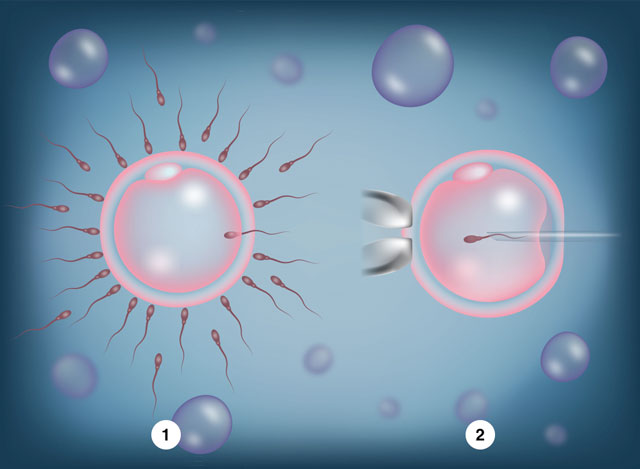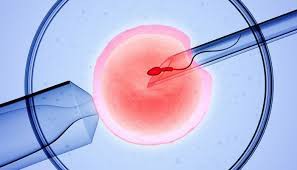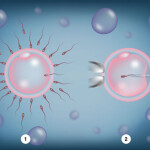
The difference between ICSI and IVF?
Have you been married for years and have made several attempts at a normal pregnancy and have not had a positive result, your doctor may recommend IVF. Either ICSI or IVF. In this article, we will tell you the difference between ICSI and IVF, when to use each and how it is performed.

ICSI and IVF Both procedures depend on completing the fertilization process in the laboratory, then returning the egg to the wife's womb, the so-called IVF process, and the difference between them lies in the fertilization step, in what follows we explain to you the steps and explain to you the fertilization step in each of them:
1) Repression of the wife's natural menstrual cycle, the menstrual cycle is prevented by the medications prescribed by the doctor.
2) Increase egg production.Medicines are used to stimulate the ovaries in order to produce the largest number of eggs possible
3) Monitoring the wife's progress and egg maturation, an ultrasound examination is performed to check the development of the eggs, and certain medications are used to help them mature.
4) Egg collection, by inserting a needle into the ovaries through the vagina to collect the eggs.
5) Fertilization of eggs.
In IVF:
healthy sperm and mature eggs are mixed and kept in incubators overnight.
In ICSI:
How the ICSI works: The wife's ovaries are stimulated to produce the largest number of eggs. Then the eggs are collected using a fine needle aspiration under ultrasound guidance. The withdrawal of the sperm is done by using a fine needle that is carefully inserted through the wall of the egg into the cytoplasm of the egg and then the sperm is injected, after that the needle is removed.
When do we resort to microscopic injection?
Doctors recommend ICSI in case there is little hope and suspicion of fertilization. It is often used for couples who have delayed childbearing due to the husband's infertility factors. Factors of infertility in a husband can include any of the following:
1) Small number sperm count. Impaired sperm motility.
2) bad or Poor sperm quality.
3) A sperm that lacks the ability to penetrate an egg.
4) Azoospermia, which is a condition in which sperm does not leave the man during ejaculation.
5) There are two types of azoospermia: obstructive and non-obstructive.
Obstructive azoospermia: may occur due to previous vasectomy (vasectomy), congenital absence of the vas deferens, scarring from previous infection.
Non-obstructive azoospermia: occurs as a result of a defect in the testicle that is unable to produce sperm.
With azoospermia, the likelihood of obtaining usable sperm is low.
When do we resort to IVF children?
Because IVF is so expensive and the steps and preparation it requires, couples often try other fertility treatments first, such as fertility drugs or intrauterine insemination (IUI).
Infertility problems in which IVF may be necessary include:
1) Blocked or damaged fallopian tubes.
2) Decreased ovarian function efficiency.
3) Scarring of the endometrium.
4) Uterine fibroids.
5) Male infertility, such as low or abnormal sperm count.
6) Decreased fertility in women over the age of 40.
7) Unexplained infertility.
A couple can also opt for IVF if they have a risk of passing a genetic disorder to their offspring.A medical laboratory can test embryos for genetic abnormalities. Then the doctor implants the embryos only if there are no genetic defects.












